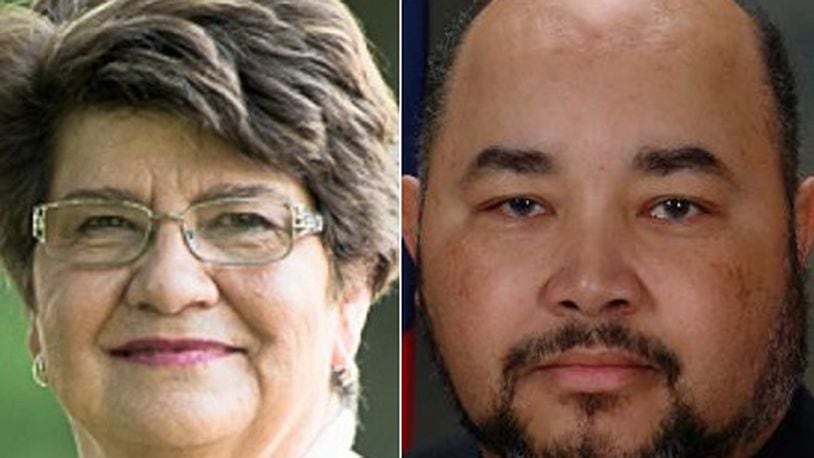We asked Lehner, a Republican, and Griggs questions about jobs, taxes, guns marijuana legalization, and other issues impacting Ohio. Below are some of their answers. See more of their responses and get information on other candidates and issues on the November ballot in our online voters guide at vote.daytondailynews.com
Q: What are the two biggest challenges facing the state and how would you deal with them?
Albert Griggs Jr.: The two biggest challenges facing the state depend upon who you are talking to and when you are talking to them. The two challenges I see as the biggest are the "budget" and how to make it work for the state. I will work across the aisle to develop legislation that will provide avenues for the state to increase revenue. Then work on a formula that will share that revenue equitably with local governments.
Peggy Lehner: The two biggest challenges facing the state are job creation and education and these two challenges are intricately linked. When citizens are employed and earning a living wage it not only provides them with the ability to support their families, it also assures that the taxes they pay are available to provide the services all citizens need, from adequate police and fire protection, well maintained roads and bridges, healthcare, quality schools etc.
Unfortunately far too many of our citizens lack the training and education needed to attract business growth in our state. Businesses looking to come to Ohio or expand in Ohio may be deterred due to a shortage of prospective employees. Even when unemployment is relatively low as it is now we must not mistake that with economic prosperity. Many in our current workforce are working at jobs that don’t pay a living wage while businesses are crying out for more skilled workers.
While there are many fine schools in our state more than 20 percent of our children are not graduating from high school, and that figure is considerably higher among the 40 percent of children raised in poverty. Even those who do graduate often leave school without the necessary skills to be hired in a workforce that requires far more skills than in past generations.
Our youngest children need to start schools with the tools they need to be successful learners which means we have to commit to the same level of high quality early childhood education that exists in most every other developed nation.
Every child must graduate from high school either prepared to be successful in higher ed or with the skills to immediately enter the workforce or earn a required credential. Vocational education programs must be more widely available and viewed as a desirable pathway to a well- paying job.
Q: Ohio has consistently cut income taxes over more than a decade. Do you support further reductions or increases in the state income tax? Why?
Albert Griggs Jr.: At this point Ohio should not lower income taxes any further and restoring the top rate for the wealthiest should be considered. We must stop the major cuts to schools and local governments that are crippling them.
Peggy Lehner: While some Ohioans have definitely benefited from reductions in the state income tax, especially small business owners, I believe that at this point no further cuts in the state income tax are needed. I think we need to be careful that any additional cuts that might be made do not negatively impact local government in a way that requires them to raise local taxes.
Q: The state gas tax has not been increased in more than a decade but Ohio roads and bridges need significant work. How do you propose addressing this?
Albert Griggs Jr.: Increasing the gas tax is something state should consider for building, repairing and rebuilding roads and bridges. Further, the state should ensure corporations pay their fair share of the costs to build, repair, and rebuild roads and bridges. This will take legislation that will probably be opposed.
Peggy Lehner: I believe that dealing with our declining infrastructure needs to be a priority for state government. It we are not able to find funding for needed repairs within the existing budget I would consider a limited increase in the gas tax but it would need to be flexible so that when gas prices are high the tax would be reduced or suspended. Keeping the price of gas low enough that it doesn't negatively impact our economy is important but when the price is low there is probably room to raise some revenue via an increase in the gas tax.
About the Author
